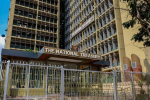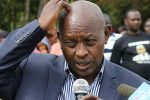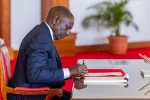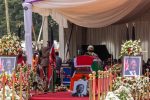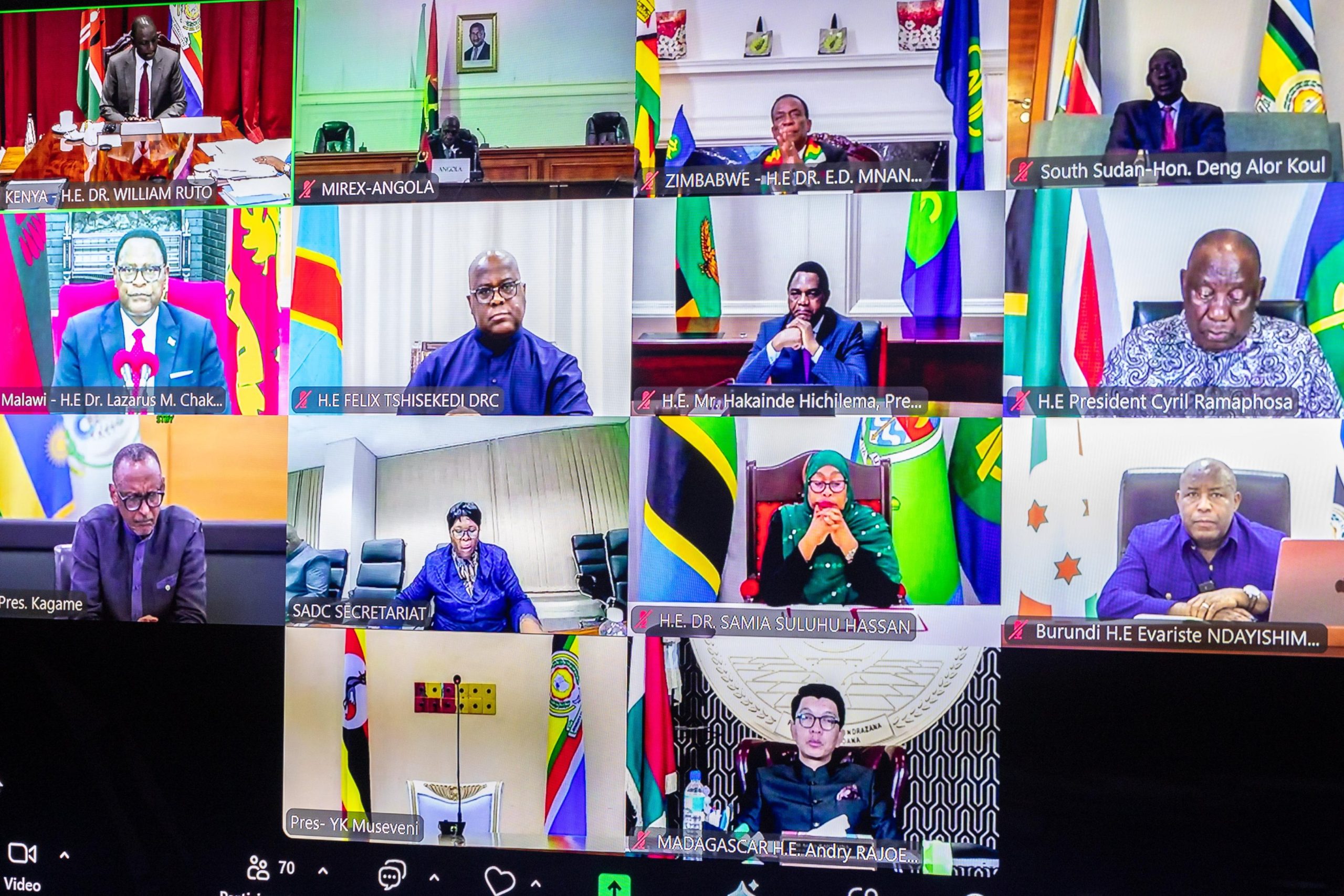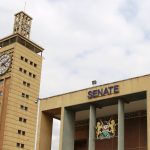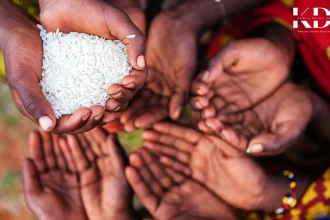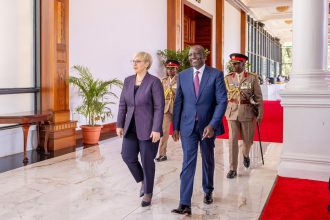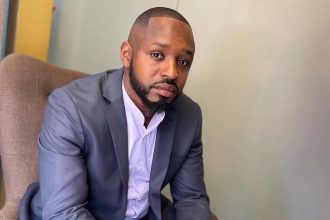DRC President Félix Tshisekedi skipped a virtual joint EAC-SADC Summit that appointed 5 peace facilitators on the ongoing crisis in the Eastern Democratic Republic of Congo.
While the summit, held on Monday night yielded the significant appointment of five high-profile facilitators to spearhead peace efforts, the non-participation of the very leader whose nation is at the heart of the conflict has raised immediate questions and concerns.
Co-chaired by Kenyan President William Ruto, the current EAC Chairperson, and Zimbabwean President Emmerson Mnangagwa, the SADC Chairperson, the joint summit aimed to find a resolution to the worsening security situation in Eastern DRC.
The region continues to be plagued by violence involving various armed groups, including the M23 rebels, with allegations of Rwandan backing – a claim vehemently denied by Kigali.
This ongoing conflict has tragically displaced hundreds of thousands and claimed numerous lives, further deepening an already dire humanitarian crisis.
Despite the critical nature of the discussions, President Tshisekedi, whose presence was initially anticipated, did not attend the virtual meeting. His spokesperson cited scheduling conflicts as the reason for his absence.
This development has sparked unease among observers, given the DRC’s central role and direct stake in resolving the ongoing conflict within its borders.
However, the summit did achieve a key outcome: the appointment of an expanded panel of five esteemed former African leaders to facilitate the peace process. This panel includes former Kenyan President Uhuru Kenyatta, Nigeria’s Olusegun Obasanjo, South Africa’s Kgalema Motlanthe, Ethiopia’s Sahle-Work Zewde, and Catherine Samba-Panza of the Central African Republic.
These seasoned diplomats are tasked with engaging all stakeholders – including armed groups, political factions, civil society, and regional partners – in an inclusive dialogue aimed at achieving a sustainable political solution.
A joint communique released after the meeting emphasized the summit’s resolve to “expedite the peace process by appointing an expanded panel of 5 facilitators,” highlighting the urgency of the situation and the need for a unified EAC-SADC approach.
The summit also adopted the report from the recent Joint EAC-SADC Ministerial Meeting held in Harare, Zimbabwe, which outlined crucial steps towards a ceasefire, cessation of hostilities, and the establishment of a secretariat to monitor the implementation of the joint decisions.
Furthermore, the leaders addressed the importance of gender representation in the peace process, ensuring the inclusion of women’s voices, who are disproportionately affected by the conflict.
Stay updated with our weekly newsletter. Subscribe now to never miss an update!
The virtual summit saw the participation of 15 Heads of State from the EAC and SADC, who reiterated their commitment to peace and regional cooperation.
President Kagame, speaking from Kigali, underscored the necessity of addressing Rwanda’s security concerns within a broader framework for a lasting solution.
The summit’s resolutions come at a critical juncture, with recent reports indicating a phased withdrawal of SADC troops deployed to support the DRC government, a decision made on March 17 without a clear public explanation.
Simultaneously, diplomatic efforts, such as the Qatar-mediated talks between Presidents Tshisekedi and Kagame on March 18, have called for an immediate ceasefire, yet fighting continues unabated on the ground.
The international community has welcomed the appointment of the facilitators, recognizing their extensive experience as a potential catalyst for progress. For instance, former President Kenyatta has previously led the EAC-led Nairobi Peace Process, while Obasanjo has a long history of mediating conflicts across the African continent.
However, the success of this initiative will undoubtedly hinge on the commitment of all parties involved and the ability to address the underlying causes of the conflict, which include political rivalries, land disputes, and the competition over the DRC’s vast mineral wealth.
As the newly appointed facilitators prepare to embark on their crucial task, the absence of President Tshisekedi from the summit casts a shadow over the proceedings.
The people of Eastern DRC remain hopeful that this joint EAC-SADC effort will finally bring lasting stability to a region that has endured decades of violence.
The developments will be closely watched by regional and international stakeholders, with the hope that this marks a genuine turning point in the DRC’s protracted crisis, despite the conspicuous absence of its head of state.
